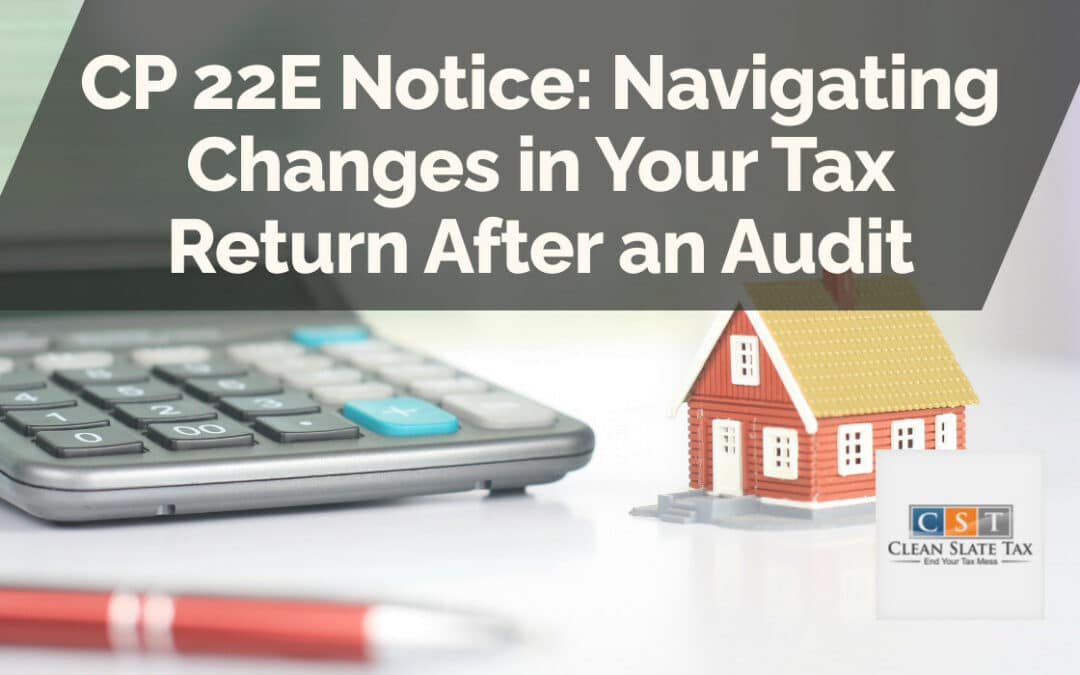If you’ve received a CP 22E notice from the Internal Revenue Service (IRS), you may feel a bit overwhelmed. The process of navigating through the changes made in your tax return after an audit can seem daunting. But with the right understanding and approach, it is certainly manageable. This comprehensive guide aims to simplify what a CP 22E notice entails, the action required from your end, and how you can rectify any irregularities found during the audit process.
What is a CP 22E Notice?
A CP 22E notice is a document issued by the IRS to inform taxpayers of changes made to their tax return during an audit. It serves as an explanation of what modifications have been done and any subsequent tax liability that has been determined. Moreover, the CP 22E notice also outlines steps on how you can challenge these changes, should you disagree with them.
Reasons for Receiving a CP 22E Notice
Typically, taxpayers receive a CP 22E notice due to the following reasons:
- An audit of the tax return led to a recalculation of the tax amount.
- There were changes because of a tax law update that affects your return.
- There were a discrepancy or input error in the submitted tax return.
Understanding Your CP 22E Notice
In the CP 22E notice, several key details are listed. It includes the proposed tax changes, the new total tax due, the due date for payment, and more. Understand these changes, as this knowledge is fundamental to resolving any tax liability.
How to Respond to a CP 22E Notice
Your response to a CP 22E notice will depend on whether you agree with the proposed changes. If you agree, you can pay the new tax amount. However, if you don’t agree, you have the right to challenge the changes.
Actions if you agree with the changes:
- Pay the due amount on or before the due date to avoid penalties and interest.
- If you cannot pay the full amount immediately, contact the IRS to discuss payment plans and options.
Actions if you disagree with the changes:
- Collect all relevant documents and proofs that support your disagreement.
- Contact the IRS and provide your reasons for disagreement along with the supporting documents.
Frequently Asked Questions
What happens if I ignore a CP 22E notice?
If ignored, the IRS may enforce collection actions, including garnishing wages or placing a lien on your property.
How can I prevent future CP 22E notices?
Accurate and timely tax filing combined with careful record keeping can help prevent CP 22E notices.
I’ve lost my CP 22E notice. Can I request another one?
Yes, you can contact the IRS to request a new one.
Receiving a CP 22E notice may initially seem intimidating, but understanding its purpose and how to address it effectively can make the process manageable. Remember that you have rights as a taxpayer, including the right to challenge the changes in your tax return. Comprehensive knowledge about the CP 22E can ensure you are prepared to respond appropriately.





